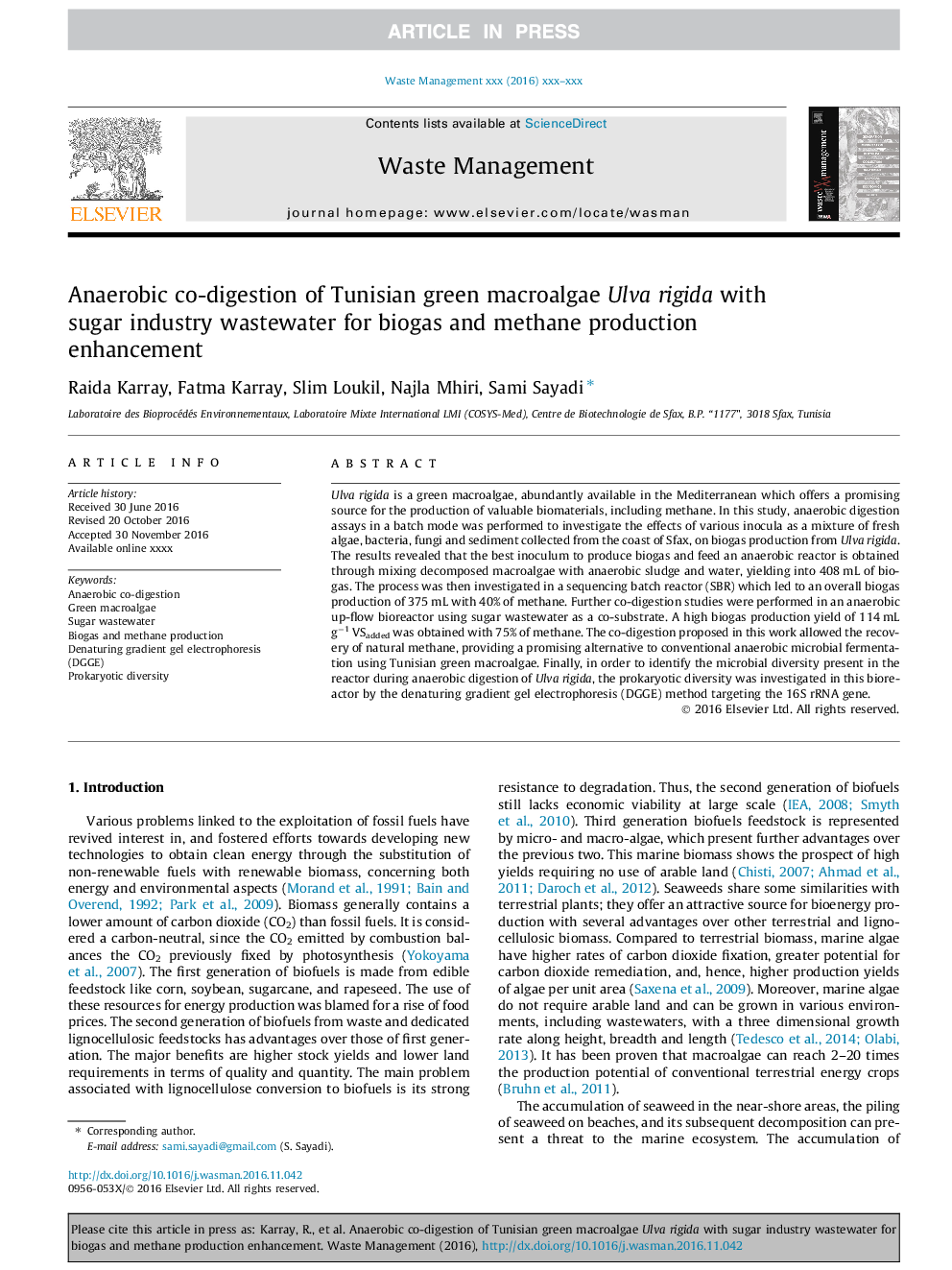| Article ID | Journal | Published Year | Pages | File Type |
|---|---|---|---|---|
| 5756950 | Waste Management | 2017 | 8 Pages |
Abstract
Ulva rigida is a green macroalgae, abundantly available in the Mediterranean which offers a promising source for the production of valuable biomaterials, including methane. In this study, anaerobic digestion assays in a batch mode was performed to investigate the effects of various inocula as a mixture of fresh algae, bacteria, fungi and sediment collected from the coast of Sfax, on biogas production from Ulva rigida. The results revealed that the best inoculum to produce biogas and feed an anaerobic reactor is obtained through mixing decomposed macroalgae with anaerobic sludge and water, yielding into 408Â mL of biogas. The process was then investigated in a sequencing batch reactor (SBR) which led to an overall biogas production of 375Â mL with 40% of methane. Further co-digestion studies were performed in an anaerobic up-flow bioreactor using sugar wastewater as a co-substrate. A high biogas production yield of 114Â mL gâ1 VSadded was obtained with 75% of methane. The co-digestion proposed in this work allowed the recovery of natural methane, providing a promising alternative to conventional anaerobic microbial fermentation using Tunisian green macroalgae. Finally, in order to identify the microbial diversity present in the reactor during anaerobic digestion of Ulva rigida, the prokaryotic diversity was investigated in this bioreactor by the denaturing gradient gel electrophoresis (DGGE) method targeting the 16S rRNA gene.
Keywords
Related Topics
Physical Sciences and Engineering
Earth and Planetary Sciences
Geotechnical Engineering and Engineering Geology
Authors
Raida Karray, Fatma Karray, Slim Loukil, Najla Mhiri, Sami Sayadi,
